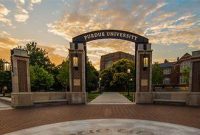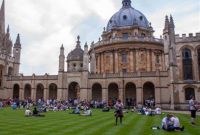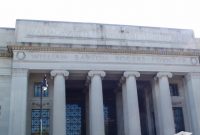Standing tall amidst the cobbled streets and historic charm of Cambridge, England, lies the University of Cambridge – a monument to academic excellence and intellectual pursuit. Founded in 1209, it boasts the title of the world’s third-oldest university in continuous operation, whispering tales of scholarly giants and groundbreaking discoveries across its centuries. This article delves into the rich tapestry of Cambridge, exploring its unique collegiate structure, illustrious history, and enduring legacy in shaping the world we know today.
A Collegiate Tapestry
Unlike most universities, Cambridge is a collegiate institution. This intricate system comprises 31 constituent colleges, each functioning as a semi-autonomous entity with its own traditions, buildings, and administration. These colleges act as vibrant communities where students live, dine, and socialize, fostering a close-knit atmosphere that complements the broader university experience. Prestigious names like Trinity College, King’s College, and Girton College grace the university, each with its own architectural marvels and distinguished alumni.
The collegiate system offers a unique benefit – a sense of belonging within a smaller, supportive community. Freshers (first-year students) become members of their chosen college, gaining access to dedicated tutors, advisors, and a network of fellow students. This personalized approach allows for in-depth academic guidance and fosters a strong sense of camaraderie.
A Legacy of Luminaries
Cambridge’s history is intricately intertwined with some of the brightest minds in human history. Isaac Newton, the revolutionary physicist who unraveled the laws of gravity and motion, honed his intellect within the hallowed halls of Trinity College. Charles Darwin, whose theory of evolution shook the foundations of scientific thought, studied theology at Christ’s College before embarking on his groundbreaking voyage on the HMS Beagle. Alan Turing, the pioneering computer scientist who cracked the Enigma code during World War II, left his indelible mark on the field of mathematics while at King’s College.
The list of luminaries who have graced Cambridge is extensive. From the philosophical musings of Ludwig Wittgenstein to the literary genius of Samuel Taylor Coleridge, the university has served as a breeding ground for innovation and intellectual exploration across disciplines. These giants not only shaped their respective fields but also left an enduring legacy that continues to inspire generations of scholars.
A Hub of Innovation
Cambridge is not merely a repository of past achievements; it thrives on ongoing research and discovery. Renowned for its world-class scientific facilities, the university is at the forefront of groundbreaking research. The Cavendish Laboratory, established in 1874, has been the cradle of numerous Nobel Prizes in Physics, including the discoveries of the structure of DNA and the theory of superconductivity. Similarly, the Cambridge Biomedical Campus fosters collaboration between researchers, clinicians, and industry leaders, accelerating advancements in healthcare and medicine.
Beyond the realm of science, Cambridge fosters innovation across disciplines. The Cambridge Judge Business School consistently ranks among the world’s best, producing future leaders in business and industry. The Department of Computer Science is a hotbed for technological breakthroughs, while the Faculty of Classics continues to illuminate the wisdom of the ancient world. This breadth of research ensures that Cambridge remains a vibrant intellectual hub, pushing the boundaries of knowledge across the spectrum of human inquiry.
The Cambridge Experience
Studying at Cambridge is an experience unlike any other. Beyond the rigorous academics, students become part of a vibrant, intellectually stimulating community. Formal college dinners provide opportunities for discourse with professors and fellow students, fostering a culture of debate and open discussion. The Cambridge Union Society, one of the world’s oldest debating societies, offers a platform for students to hone their public speaking and critical thinking skills.
The city of Cambridge itself becomes an extension of the university. Punting along the River Cam, a quintessential Cambridge experience, allows for quiet reflection or lively conversation amidst the picturesque backdrop. Renowned museums like the Fitzwilliam Museum and the Museum of Archaeology and Anthropology offer students a chance to immerse themselves in diverse cultures and historical periods. This rich tapestry of experiences – academic rigor, cultural exploration, and a supportive community – contributes to the transformative nature of a Cambridge education.




